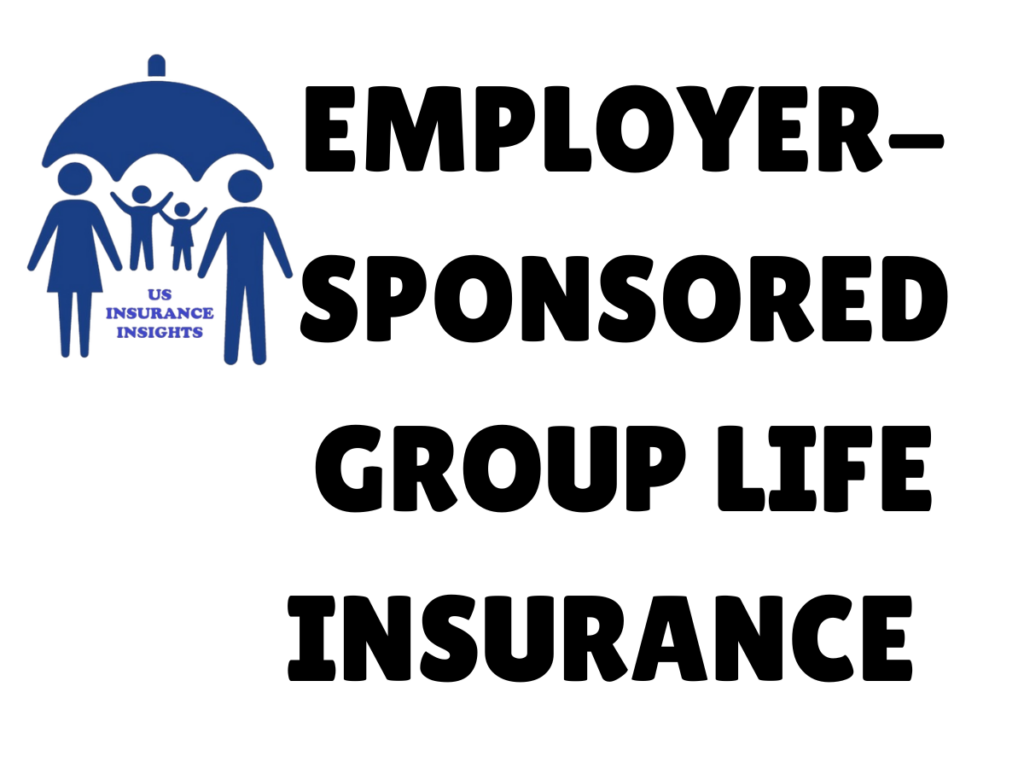Employer-sponsored group life insurance is a valuable employee benefit that provides financial security for workers and their families. Whether you’re an employer looking to offer this cost-effective coverage or an employee wondering about your options, understanding group life insurance is essential.
What Is Employer-Sponsored Group Life Insurance?
Employer-sponsored group life insurance is a life insurance policy provided by an employer for its employees. Unlike individual life insurance, which requires personal underwriting, group life insurance covers a large number of employees under a single policy, making it more affordable and accessible.
Most employers offer this benefit at no cost or at a lower premium than personal policies. The coverage typically equals one to two times an employee’s annual salary, with options to purchase additional coverage. This makes it an attractive perk for employees looking for financial protection without having to go through complex medical underwriting processes.
How Does Group Life Insurance Work?
Employers purchase a master policy from an insurance provider, and employees are enrolled automatically or through an opt-in process. Here’s a step-by-step breakdown:
1. Employer Chooses a Policy
Companies partner with an insurance provider to select a group life insurance plan based on budget and workforce size. Employers may choose from different plan structures, such as basic employer-paid plans or voluntary supplemental coverage where employees can pay for additional benefits.
2. Employees Get Coverage
Most employees qualify for basic coverage without a medical exam. This makes it easier for individuals with pre-existing conditions to obtain life insurance. Coverage is usually automatic for eligible employees, though some may need to actively enroll.
3. Optional Supplemental Insurance
Employees may have the option to buy additional coverage at a discounted group rate. This can be particularly useful for employees who need more protection beyond what the employer provides.
4. Beneficiary Designation
Employees name a beneficiary who will receive the death benefit if they pass away. It’s important to keep beneficiary information up to date, especially after major life events such as marriage, divorce, or having children.
5. Coverage Ends or Converts
If an employee leaves the company, they may have the option to convert the policy into an individual life insurance plan. However, conversion options vary by policy and may require higher premiums.
Why Employers Should Offer Group Life Insurance
Offering group life insurance is a win-win for both employers and employees. Here’s why it matters:
1. Attract & Retain Top Talent
Workers value comprehensive benefits packages. Providing group life insurance can make your company more competitive. In a job market where employees prioritize financial security, offering life insurance as a benefit can differentiate your company from others.
2. Boost Employee Satisfaction (Employer-sponsored group life insurance)
Financial security gives employees peace of mind. They work better knowing their families are protected. Employees who feel supported by their employer are more likely to stay engaged and productive in their roles.
3. Affordable for Employers (Employer-sponsored group life insurance)
Unlike other employee benefits, group life insurance is relatively low-cost, especially when purchased in bulk. Employers can offer basic coverage at minimal expense, making it a high-value benefit.
4. Tax Benefits (Employer-sponsored group life insurance)
Premiums paid by employers for group life insurance may be tax-deductible under certain conditions. This makes it a financially smart choice for businesses looking to provide strong employee benefits while managing costs effectively.
Key Features of Employer-Sponsored Group Life Insurance
- Lower premiums compared to individual policies
- Guaranteed coverage without medical exams
- Basic coverage at no cost to employees
- Optional additional coverage at discounted rates
- Portable options if employees leave the company
- Simplified enrollment process for employees
Limitations of Group Life Insurance
While group life insurance is beneficial, it does have some limitations:
1. Limited Coverage Amount (Employer-sponsored group life insurance)
The death benefit may not be enough for employees with large financial responsibilities. Standard coverage usually equals one to two times an employee’s salary, but financial experts often recommend coverage of at least 10-15 times annual income.
2. Loss of Coverage When Leaving the Job (Employer-sponsored group life insurance)
If an employee resigns, they might lose coverage unless they convert it into an individual policy. However, conversion premiums tend to be much higher than those for traditional individual policies.
3. Limited Customization
Unlike individual life insurance, group plans offer less flexibility in terms of coverage amounts and policy options. Employees looking for highly tailored plans may need to supplement their coverage with a personal policy.
Should You Get Additional Coverage?
If your employer-sponsored life insurance is your only coverage, consider whether the payout would be enough for your family. Experts recommend 10-15 times your annual income in life insurance coverage.
If your employer offers voluntary supplemental life insurance, it may be a good option. Otherwise, you can purchase a separate individual policy for more security. Consider factors such as your mortgage, children’s education, debts, and long-term financial needs when evaluating your coverage.
How to Make the Most of Your Group Life Insurance
- Understand Your Policy – Read your company’s benefits package to know exactly what is covered.
- Name a Beneficiary – Choose someone who will receive the benefits and update this designation as needed.
- Consider Additional Coverage – Assess your financial needs and determine if supplemental insurance is necessary.
- Know Your Conversion Options – Learn how to convert your policy if you leave your job and explore individual policy alternatives.
- Review Coverage Annually – As your salary and financial obligations change, make sure your life insurance policy keeps up with your needs.
Final Thoughts
Employer-sponsored group life insurance is an excellent financial safety net that many employees get for little to no cost. However, for long-term financial security, consider supplemental coverage to meet your family’s full needs.
If you’re an employer, offering group life insurance is a cost-effective way to show your employees you care about their future. If you’re an employee, take advantage of this benefit and explore ways to maximize your coverage.
Want to learn more? Check with your HR department or an insurance provider to explore your options!


1 thought on “# The Power of Employer-Sponsored Group Life Insurance”